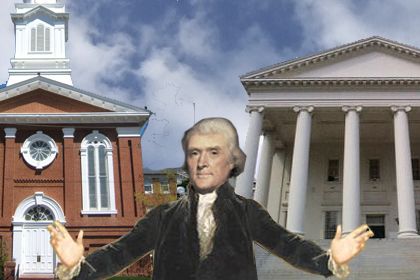رأى الوزير والنائب السابق الشيخ فريد هيكل الخازن في تصريح له اليوم، "أن نداء المطارنة الموارنة الاخير دق فعلا جرس الانذار، …
US Ambassador to Lebanon Maura Connelly on Thursday condemned the deportation of 14 Syrian nationals from Lebanon during a meeting …
Electricite du Liban contract workers officially announced on Friday the end of their three-month strike and the resumption of work at …

It has been a learned joke for 40 years that long-serving Chinese premier Chou En-lai, when asked the principal consequence of the French Revolution, replied: “It is too early to say.” As events unfold in this rather dismal election year in the United States, that does not now seem such a jokey comment. The Revolution in France was carried out in successively more radical stages in the name of Reason, culminating in the bloodbath of the Terror of Prairial in 1794 under the Committee of Public Safety headed by Maximilien de Robespierre. Robespierre menaced the National Convention; he was deposed, declared outside the law, and executed without trial. The calm of Thermidor ensued and there followed pell-mell in the next 165 years a cavalcade of directory, consulate, empires, restorations, republics, and occupations.
The central struggle, in France and in most of the West, was over the role of the state, and more generally, over the cohabitation in Western civilization of the forces of Faith and the forces of, broadly speaking, Reason. (Between 1793 and 1871, one archbishop of Paris fled, one was publicly guillotined, one executed by firing squad, and two were assassinated — pretty rough treatment for normally serenely eminent pillars of society; yet, at intervals, the Church was exalted.) This naturally unstable balance, as the sage Chinese statesman realized, is unresolved, even in America. Most of the leaders of the American Revolution were not religious men; of the six principal founders of the United States, Washington, Franklin, Jefferson, Hamilton, Madison, and Adams, only Adams was a practicing Christian. Washington managed the vocabulary and rites occasionally, as when he prayed at Fort Necessity in 1754 (as well he might, after effectively starting the Seven Years’ War with France and being in a desperate military siege), or when he recommended, for war profiteers in the Continental Congress, a higher gallows than Haman’s in the Old Testament (reckoned to have been 50 feet tall). Jefferson was a deist but managed to refer to “Nature’s God” and Man’s “Creator” in the Declaration of Independence.
Khazen History


Historical Feature:
Churches and Monasteries of the Khazen family

St. Anthony of Padua Church in Ballouneh
Mar Abda Church in Bakaatit Kanaan
Saint Michael Church in Bkaatouta
Saint Therese Church in Qolayaat
Saint Simeon Stylites (مار سمعان العامودي) Church In Ajaltoun
Virgin Mary Church (سيدة المعونات) in Sheilé
Assumption of Mary Church in Ballouneh
1 - The sword of the Maronite Prince
2 - LES KHAZEN CONSULS DE FRANCE
3 - LES MARONITES & LES KHAZEN
4 - LES MAAN & LES KHAZEN
5 - ORIGINE DE LA FAMILLE
Population Movements to Keserwan - The Khazens and The Maans
ما جاء عن الثورة في المقاطعة الكسروانية
ثورة أهالي كسروان على المشايخ الخوازنة وأسبابها
Origins of the "Prince of Maronite" Title
Growing diversity: the Khazin sheiks and the clergy in the first decades of the 18th century
Historical Members:
Barbar Beik El Khazen [English]
Patriach Toubia Kaiss El Khazen(Biography & Life Part1 Part2) (Arabic)
Patriach Youssef Dargham El Khazen (Cont'd)
Cheikh Bishara Jafal El Khazen
Patriarch Youssef Raji El Khazen
The Martyrs Cheikh Philippe & Cheikh Farid El Khazen
Cheikh Nawfal El Khazen (Consul De France)
Cheikh Hossun El Khazen (Consul De France)
Cheikh Abou-Nawfal El Khazen (Consul De France)
Cheikh Francis Abee Nader & his son Yousef
Cheikh Abou-Kanso El Khazen (Consul De France)
Cheikh Abou Nader El Khazen
Cheikh Chafic El Khazen
Cheikh Keserwan El Khazen
Cheikh Serhal El Khazen [English]
Cheikh Rafiq El Khazen [English]
Cheikh Hanna El Khazen
Cheikha Arzi El Khazen
Marie El Khazen